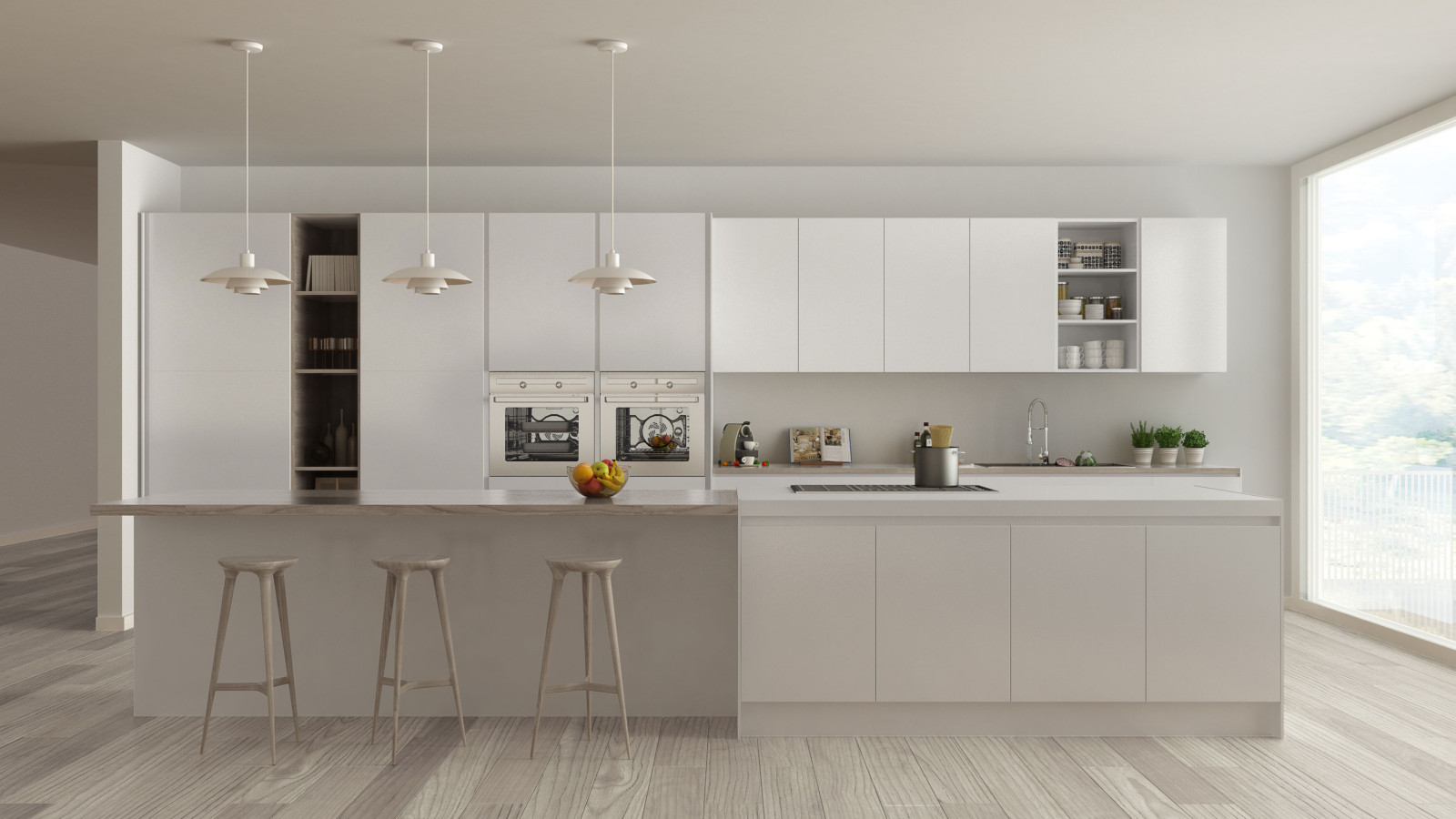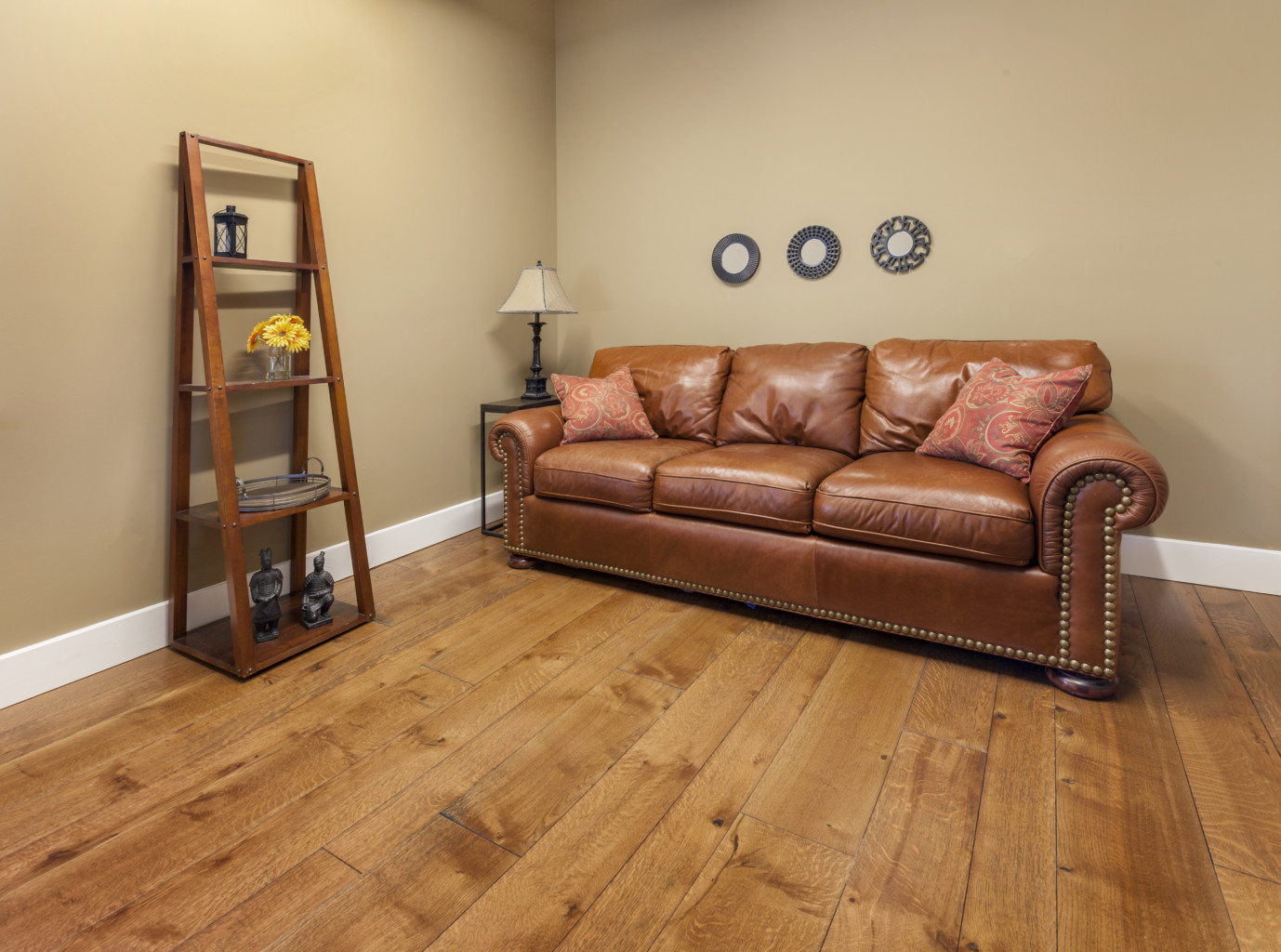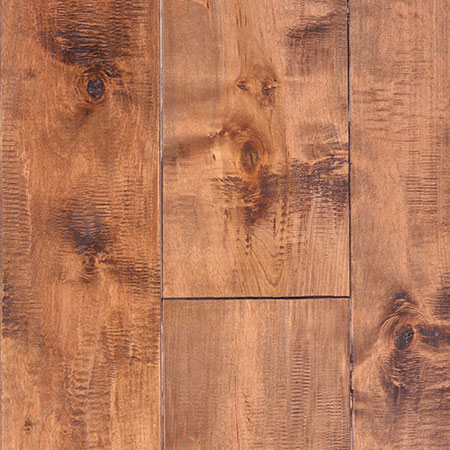Right after you’ve made the decision to install wide plank hardwood floors in your home or business or for one of your clients, the next part of the process starts. Now there are a bunch of other decisions to make regarding the actual type of wide plank floor that would be best for you to install!
Luckily, we’ve put together a quick guide to help you out. Here are 5 important things to consider when buying wide plank hardwood floors:
Solid vs. engineered wood
There are a number of significant differences between solid wide plank floors and engineered wide plank floors, but it’s easy to make a decision once you understand your specific needs and the type of environment in which the floors will be installed.
Engineered wide plank floors are more dimensionally stable than solid hardwood floors. Because of this, they won’t be as prone to buckle or split in response to humidity fluctuations or changes in temperature.

Solid wide plank hardwood floors tend to have a more natural look because they are just plain wood. However, they are less dimensionally stable than engineered floors, and the fact that they are wide contributes even further to their relative instability.
If the environment in which the floors are going to be installed is subject to a lot of humidity fluctuations throughout the year, you might decide to install engineered wide plank floors in order to reduce the risk of any possible problems.
Species
This is probably the most important decision you will make.
Which species you ultimately choose isn’t just about aesthetics; it’s about the properties of the wood itself. For example, ash offers a lot of dimensional stability, which means that it’s less likely to respond to fluctuations in the environment like a wood with less dimensional stability would.
A harder wood like hickory is less likely to exhibit dents than a softer wood, like pine.
If you’re installing the floors in an environment that will experience a lot of foot traffic, it’s best to opt for a harder wood to make sure that the floors will stand up to the wear and tear that comes with regular use. Whereas if you’re installing the floors in an area that is subject to a lot of humidity fluctuations, you might want to opt for a species with above-average dimensional stability.
Click here to browse our comprehensive species descriptions and learn more about the properties of various wood types.
Grade
The grade of the wood refers to the percentage of defect-free boards in a section.

If you’d like a floor with a lot of rustic appeal, character markings, and check marks, you’d probably want to opt for No 2. Common or No 1. Common grade floors. If you’d like something with minimal character markings and a somewhat more traditional appearance, clear or select grade floors are probably a better bet.
Prefinished vs. site-finished
Prefinished is easier to install because it requires no on-site finishing process. This saves you from a lot of the dust that would be created when a floor is finished on-site. If you opt for site-finished floors, you’ll also have to choose which kind of finish you’d like applied to the floor.
Many prefinished floors are covered with aluminum oxide finish, which is very durable and usually cured via UV at the factory. There are also very strong finishes used like acid cured / conversion varnish as well as the European hard wax oils that perform extremely well.
Board size – width and length
Wide plank hardwood floors come in not only a variety of widths, but also different lengths. You have to decide whether you want the boards to be all the same length or if you’d like them to be varying lengths.
Floors with longer lengths typically make a room look more open, but it must be spacious enough to accommodate longer boards.
We offer wide plank hardwood floors in a variety of widths and lengths. You can order custom flooring with boards as long as 15+ feet each!
All of our floors are custom-milled, so they can fit your exact specifications regarding width and length.
These are just some of the many decisions you’ll have to make when you take the leap and decide that you want to install wide plank hardwood floors in your home or business. For more information, call us at (877) 697-5265 or fill out the form at the bottom of this page to download our free guide which reviews 9 things to consider when buying wide plank hardwood floors.
